Are you looking to get started investing in stocks and wondering which stock books are good to read to learn as much as possible, as early as possible?
Then you've come to the right place. In this article, you will see the books that I believe are the best stock books for beginners.
I remember when I myself began to take a real interest in investing. Some of the books on the list I read early, but there are many of them I wish I discovered earlier. They have really been valuable on the way to becoming a better and safer investor.
There are many books on the subject, and I have read a number of both good and not so good books. In this article, I have therefore found 8 stock books that made the biggest impression on me personally, and which I recommend you get for your bookshelf.
I have tried to present books that both highlight mindsets, strategies, and investment in funds and individual shares respectively.
Below the list itself, you can read in more detail about each book. In this way, you can find out for yourself which share book suits you.
The 8 best stock books I think every beginner should read:
- The Little Book That Still Beats the Market
- Rich Dad, Poor Dad
- One Up On Wall Street
- Richer, Wiser, Happier
- The Little Book of Common Sense Investing
- Thinking Fast and Slow
- The Simple Path to Wealth
- The Intelligent Investor
Further in this article you can read more about the books.
1. «The Little Book That Still Beats the Market» (Joel Greenblatt)
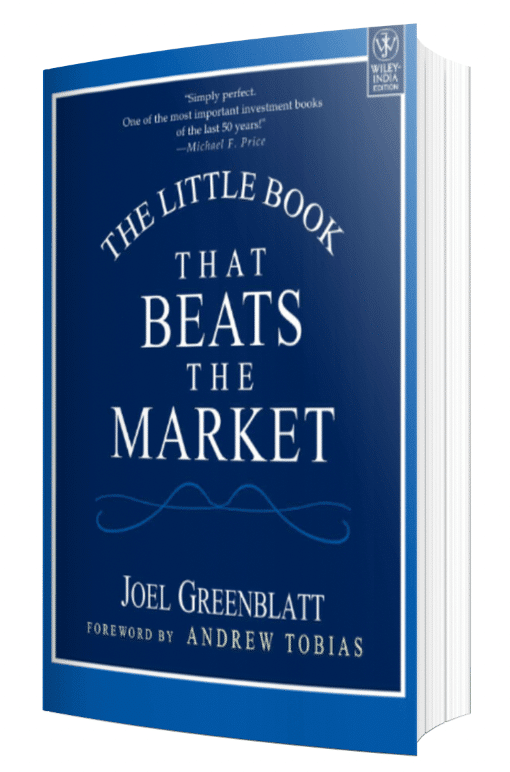
"The Little Book That Still Beats the Market" is a book written by investment manager Joel Greenblatt.
This is a book I have plowed through probably double digit number of times now.
It is, as the title of the book suggests, a relatively small book. Therefore, it is also very easy to get through, andperfect for beginners.
Although Greenblatt wrote this for a novice investor, his book became so popular that even professional managers followed the tips in the book.
Greenblatts ‘Magic Formula’
Mr. Greenblatt says that by focusing on companies with high return on capital and low valuation ratios, you can identify undervalued stocks with the potential for strong long-term growth, and thus good returns.
To illustrate this message, Greenblatt shows the results of a simple investment strategy that he calls the "Magic Formula". This strategy, which involves ranking stocks based on their return on invested capital, has been proven to beat the market over a long period of time.
2. «Rich Dad Poor Dad» (Robert Kiyosaki)
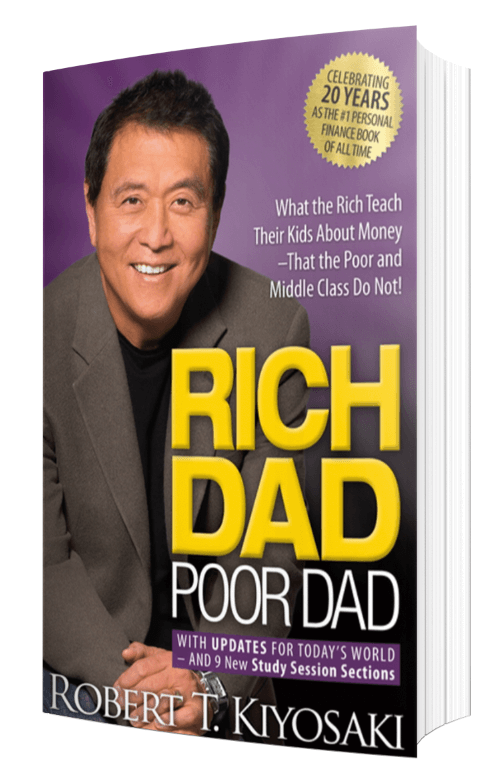
Rich Dad, Poor Dad was one of the very first money and self-development books I read myself, and it made a deep impression on the then 17-year-old me.
The book's main message
The main message of this book is that the traditional view of education and work ("get an education and get a job") is not the best way to go if you want to be rich.
Instead Kiyosaki argues that financial success requires a different attitude and a willingness to take risks and learn new skills.
He recommends that you build several sources of income, invest in assets that generate passive income, and have a long-term financial plan (here you can read about some passive income ideas, if you are interested in the topic).
The book is based on Kiyosaki's own experiences, where he grew up with his real father and what he calls his "rich father".
His biological father was a poor but well-educated man, and his best friend's father, with whom Kiyosaki himself apprenticed, was a rich, uneducated man.
Through these experiences, Kiyosaki learned valuable lessons about money, work, and financial independence.
3. «One up on Wall Street» (Peter Lynch)
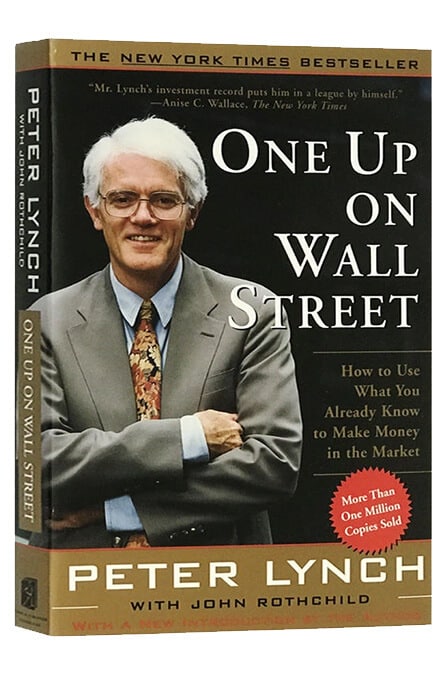
"One Up on Wall Street" is one of my all-time favorite books, written by one of my great heroes, Peter Lynch.
After reading this book, you will know different types of companies, such as Stalwarts and Fast-growers, as well as how to find "Ten Baggers" - that is, stocks that have the potential to go tenfold from your original investment.
It is precisely such ten baggers that can be the difference between an average stock portfolio and insane returns.
The book's main message
The book's main message is that a good return on investments is not impossible for new investors. As a small individual investor, you can even beat the big, established institutions.
The book is packed with Lynch's experiences, and he is straightforward in the way he communicates. It is an easy read and hard to put down!
4. «Richer, Wiser, Happier» (William Green)
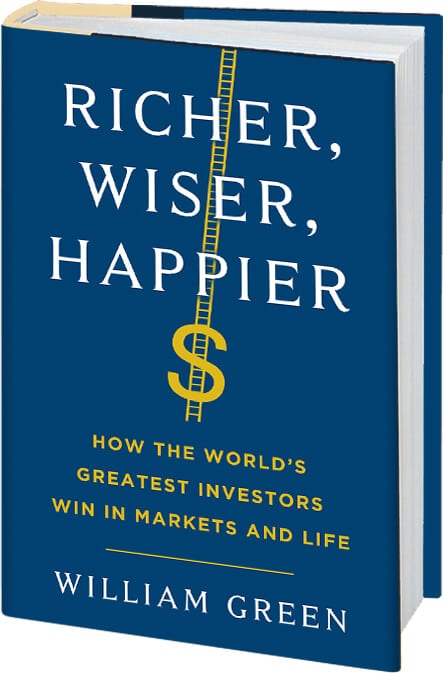
"Richer, Wiser, Happier" is currently my favorite book. It is written by William Green, a financial journalist and author who interviewed several legendary investors for his book.
Green is very active on Twitter, and actually answers any questions you may have about investing. I think that's cool!
Among the investors he interviews are Mohnish Pabrai, Sir John Templeton and Charlie Munger. Hearing their stories and life experiences is worth its weight in gold for you who are just starting out, as you can pick up valuable tips, lessons and ideas that you can use in your own investment.
5. «The Little Book of Common Sense Investing» (John C. Bogle)
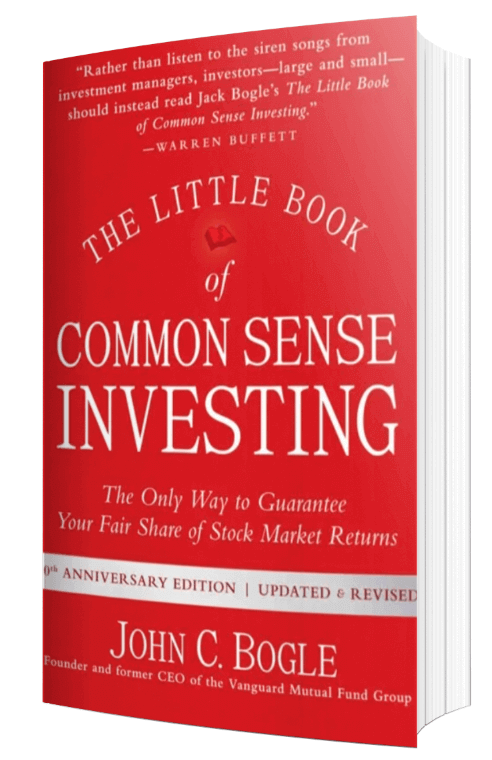
Have you heard of John C. Bogle? This is the man who created the first index funds.
In The Little Book of Common Sense Investing, he argues that the very best way to invest in the stock market is to buy and hold a diversified portfolio of index funds.
According to this book, you should adopt a disciplined and systematic approach to investing to achieve long-term success in the stock market.
This approach involves focusing on maximizing returns while minimizing both management costs and risk.
He also believes that you should avoid the temptation to try to beat the market or chase short-term gains.
Although this is not my favorite book, as I like to think that I am able to beat the index. But I definitely see the value of it for you who may not have the same interest, and would rather have a systematic and less demanding investment strategy.
And that's why I think it should be on this list.
6. «Thinking Fast and slow» (Daniel Kahneman)
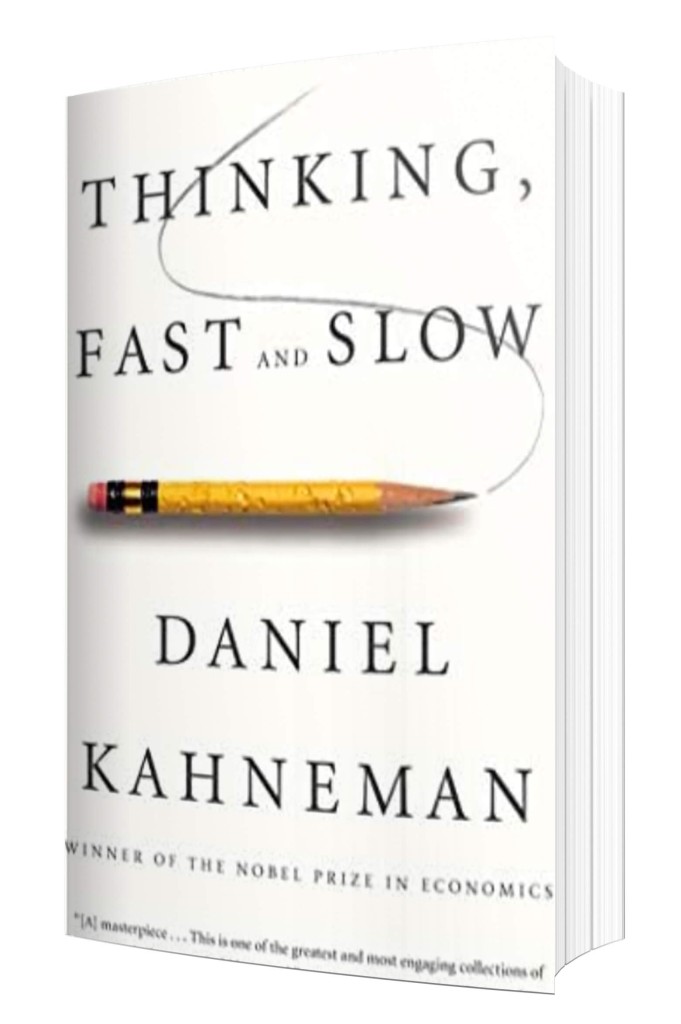
This is not exclusively an investment book, but a book that deals with our psychology, which I have read a couple of times.
Kahneman has worked all his life researching cognitive bias, and how it affects the choices we make. He believes we have two ways of thinking in this regard: fast and slow.
The big advantage you get from reading this book? Well, it gives you valuable information on how to apply these insights to your own investment decisions.
For example, Kahneman points out that the downside of thinking quickly is that we have biases that we automatically use, which can be wrong - while on the other hand, we can make a more informed choice by thinking slowly .
You should definitely check out this book if you are interested in reading the details of the systems Kahneman goes through.
7. «The Simple Path to Wealth» (JL Collins)
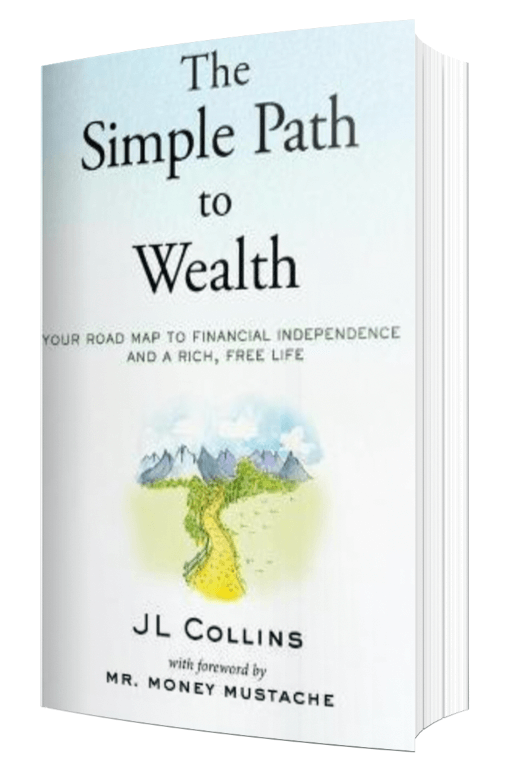
This book is a very motivating beginner's guide to investing in the stock market, focusing on low cost index funds and long term investing. Collins' approach is simple and easy to understand, making it a great choice for those just starting to invest.
And the path is quite simple as well.
In the book, Collins lays out 9 basic steps you must take to become rich:
- Don't marry a person who is irresponsible with their own finances
- Avoid so-called "Money Managers", as nobody cares about your money as much as you do
- Avoid debt
- Save a fixed proportion of the money you receive
- Try to have as high a savings rate as possible. 50% is not impossible
- Put the money in the Vanguard Total Stock Market Index Fund (VTSAX) and add more at every opportunity
- Understand that the stock market fluctuates violently, and that there will be cases where your fund falls drastically. When everyone shouts "sell", you see an opportunity to add more
- When you can live off the dividends from VTSAX, you are financially free
- The less you need, the more free you are
8. The Intelligent Investor (Benjamin Graham)
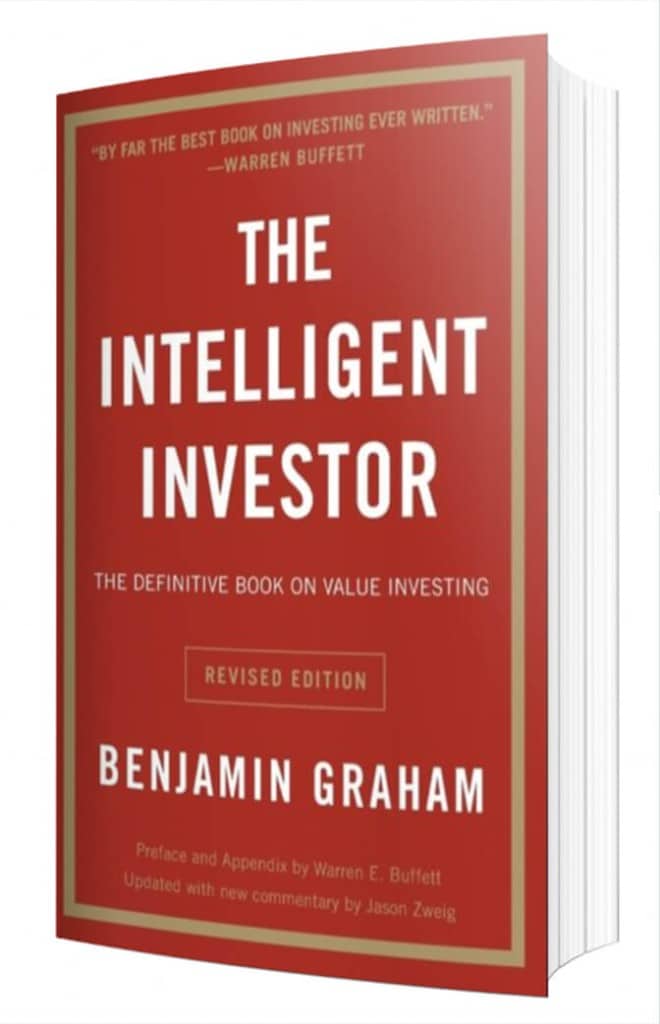
This book by Benjamin Graham is regarded as the very investment bible when it comes to value investing (value investing), and so we can't get away from it.
I myself have only read the English version, but it also comes in a Norwegian edition.
The English version is a relatively heavy read, if you ask me - perhaps especially for beginners, but I still recommend it.
Why, you ask?
Because there are few books that have taught me as much about investor mentality as this book.
If you are to succeed as an investor, it is important that you have ice in your stomach, and understand that the market can behave irrationally at times, and it is in such moments that you as an investor can make some really good share purchases.
Graham illustrates this in the form of "Mr. Market», which personifies the stock market, and how it behaves. In that one euphoric moment, Mr. Market overprices his stocks. Everything is joyous and fun, and no stock is too expensive for him.
The next moment, Mr. Market is depressed and looking darkly at the future. He sells all stocks at far below their real value.
As an investor, you can take advantage of this, as you can recognize such moments and buy shares on the cheap.
Want to see the super investors' favorite books as well?
The best investors also once started as young and inexperienced investors. But even today, they read regularly and maintain their knowledge. Through a number of interviews and annual meetings over the years, we have been served various book recommendations.
And I'm working on compiling lists of these recommendations, so you can see which books investors like Warren Buffett, Charlie Munger, and Bill Ackman are highlighting—that might be of interest to you.
You will find the overview of the investors and their favorite books here.
A couple of recommended articles too
Books are one of many good ways to learn. You will also find a number of good articles on investment. Here are a couple of articles I recommend you check out:
- The Superinvestors of Graham-and-Doddsville
- Stocks for beginners: a big guide to investing in stocks and mutual funds
One last tip...
If you don't want to keep physical copies of the recommended stock books on your bookshelf, I recommend checking out Storytel. Here you get both ebooks and audiobook versions of a wide range of investment books, including all the books on this list!





